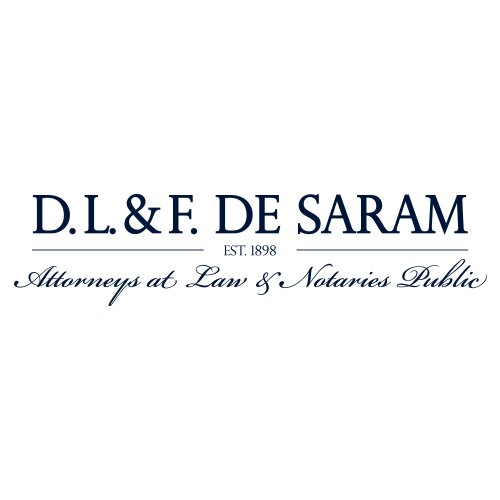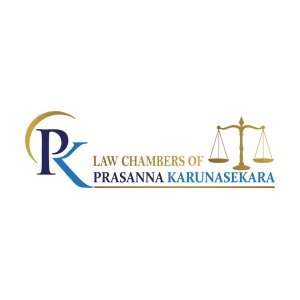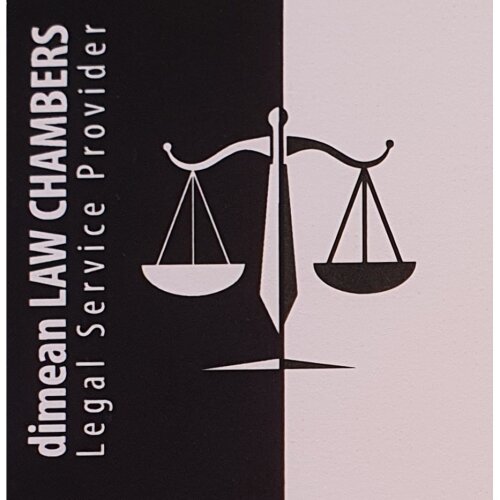Best Adoption Lawyers in Sri Lanka
Share your needs with us, get contacted by law firms.
Free. Takes 2 min.
Free Guide to Hiring a Family Lawyer
Or refine your search by selecting a city:
List of the best lawyers in Sri Lanka
About Adoption Law in Sri Lanka
Adoption in Sri Lanka is a legally binding process governed by the Adoption of Children Ordinance. It provides a legal avenue for individuals or couples to assume the parenting responsibilities from the biological parents of a child. This involves a meticulous process to ensure the welfare of the child and adherence to legal statutes, overseen by the Department of Probation and Child Care Services. The primary objective is to ensure that the child's best interests are upheld and their rights protected.
Why You May Need a Lawyer
Adoption can be a complex legal procedure involving many bureaucratic steps, paperwork, and interactions with various government agencies. Here are some common situations where legal assistance might be essential:
- Understanding the eligibility criteria for adoptive parents in Sri Lanka.
- Navigating the complexities of international adoptions, which involve additional legalities through the Hague Convention.
- Clarifying legal obligations and rights of adoptive parents and biological parents.
- Handling rejections or appeals in the adoption process to ensure that the process continues smoothly.
- Ensuring compliance with domestic laws and international treaties involved in adoption proceedings.
Local Laws Overview
The adoption process in Sri Lanka is primarily regulated by the Adoption of Children Ordinance. Important aspects of the law include:
- Only Sri Lankan citizens or individuals who have been resident in Sri Lanka for at least five years are usually allowed to adopt.
- The consent of the child's biological parents is generally required unless there are extenuating circumstances.
- A mandatory social welfare assessment is conducted to ensure a suitable environment for the child.
- Legal processes must be carried out in a Magistrate’s Court or a District Court, depending on the situation.
- Specific rules apply to intercountry adoptions, in line with the Hague Convention on Protection of Children and Co-operation in Respect of Intercountry Adoption.
Frequently Asked Questions
1. What are the eligibility criteria for adopting a child in Sri Lanka?
Adopters must typically be Sri Lankan citizens or have been residents in the country for at least five years. They should be financially stable and capable of taking on the responsibilities of parenthood.
2. Can single individuals adopt in Sri Lanka?
Yes, single individuals can adopt, but they must meet the same eligibility criteria as married couples.
3. How does the consent process work in adoption?
The biological parents of the child must generally provide consent for the adoption, unless the courts rule otherwise under special circumstances.
4. Are there any age regulations for adoptive parents?
Adoptive parents usually should be over 25 years old. The age difference between the child and the adoptive parents should also be appropriate - often at least 21 years.
5. How long does the adoption process take in Sri Lanka?
The process can be lengthy, usually taking several months to a year, depending on various factors such as court schedules and the preparation of necessary documentation.
6. What is the role of the Department of Probation and Child Care Services in adoption?
This department manages the oversight of adoption processes, ensuring that all procedures are followed correctly and that the child's welfare is prioritized.
7. Are there special considerations for adopting relatives' children?
Yes, relative adoptions often proceed more smoothly, but they still need to comply with all relevant laws and procedures.
8. What documents are required for adoption?
Typically, adoptive parents will need to submit proof of identity, financial statements, marriage certificates (if applicable), health records, and any other documentation that demonstrates their suitability as parents.
9. Can foreigners adopt children from Sri Lanka?
Yes, but they must adhere to stricter regulations, often involving international adoption treaties and requiring a home study in the foreign country.
10. Is post-adoption support available in Sri Lanka?
Various NGOs and government bodies may provide support services for both adoptive parents and children post-adoption.
Additional Resources
Here are a few resources that may assist those seeking adoption-related legal help:
- Department of Probation and Child Care Services
- Local legal aid clinics providing free or subsidized legal advice
- International Social Service (ISS) for intercountry adoption queries
- UNICEF and Save the Children for child welfare-related support
Next Steps
If you need legal assistance in adoption, consider the following steps:
- Consult with an experienced family law attorney who specializes in adoption in Sri Lanka.
- Gather required documents and start familiarizing yourself with the adoption procedures.
- Engage with support groups or forums for adoptive parents for shared experiences and advice.
- Keep abreast of any legal updates or changes to the adoption procedures in the country.
By taking these steps, you ensure that you’re informed and well-prepared for the adoption process, ultimately aiding in a smoother transition to parenthood.
Lawzana helps you find the best lawyers and law firms in Sri Lanka through a curated and pre-screened list of qualified legal professionals. Our platform offers rankings and detailed profiles of attorneys and law firms, allowing you to compare based on practice areas, including Adoption, experience, and client feedback.
Each profile includes a description of the firm's areas of practice, client reviews, team members and partners, year of establishment, spoken languages, office locations, contact information, social media presence, and any published articles or resources. Most firms on our platform speak English and are experienced in both local and international legal matters.
Get a quote from top-rated law firms in Sri Lanka — quickly, securely, and without unnecessary hassle.
Disclaimer:
The information provided on this page is for general informational purposes only and does not constitute legal advice. While we strive to ensure the accuracy and relevance of the content, legal information may change over time, and interpretations of the law can vary. You should always consult with a qualified legal professional for advice specific to your situation.
We disclaim all liability for actions taken or not taken based on the content of this page. If you believe any information is incorrect or outdated, please contact us, and we will review and update it where appropriate.
Browse adoption law firms by city in Sri Lanka
Refine your search by selecting a city.

















